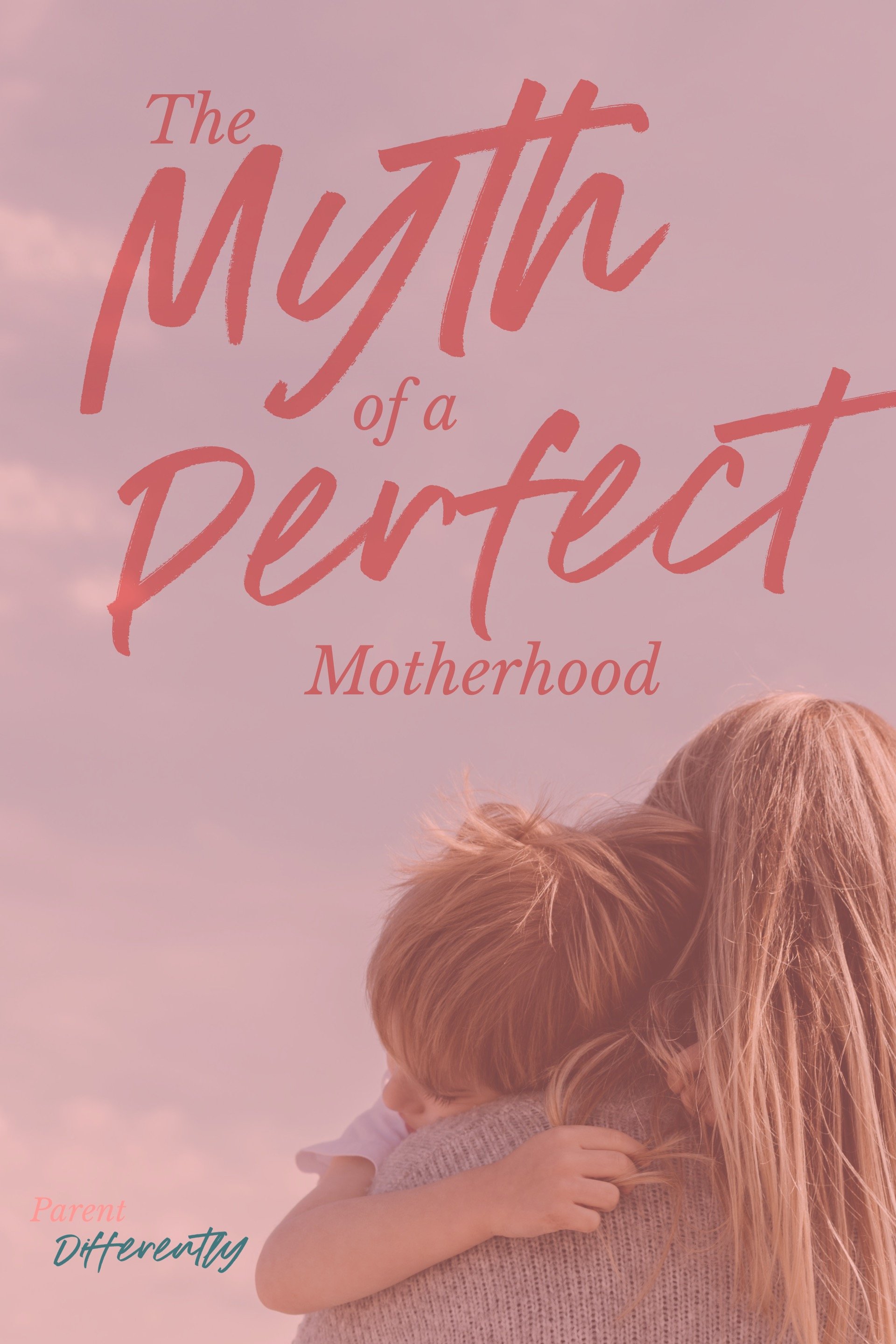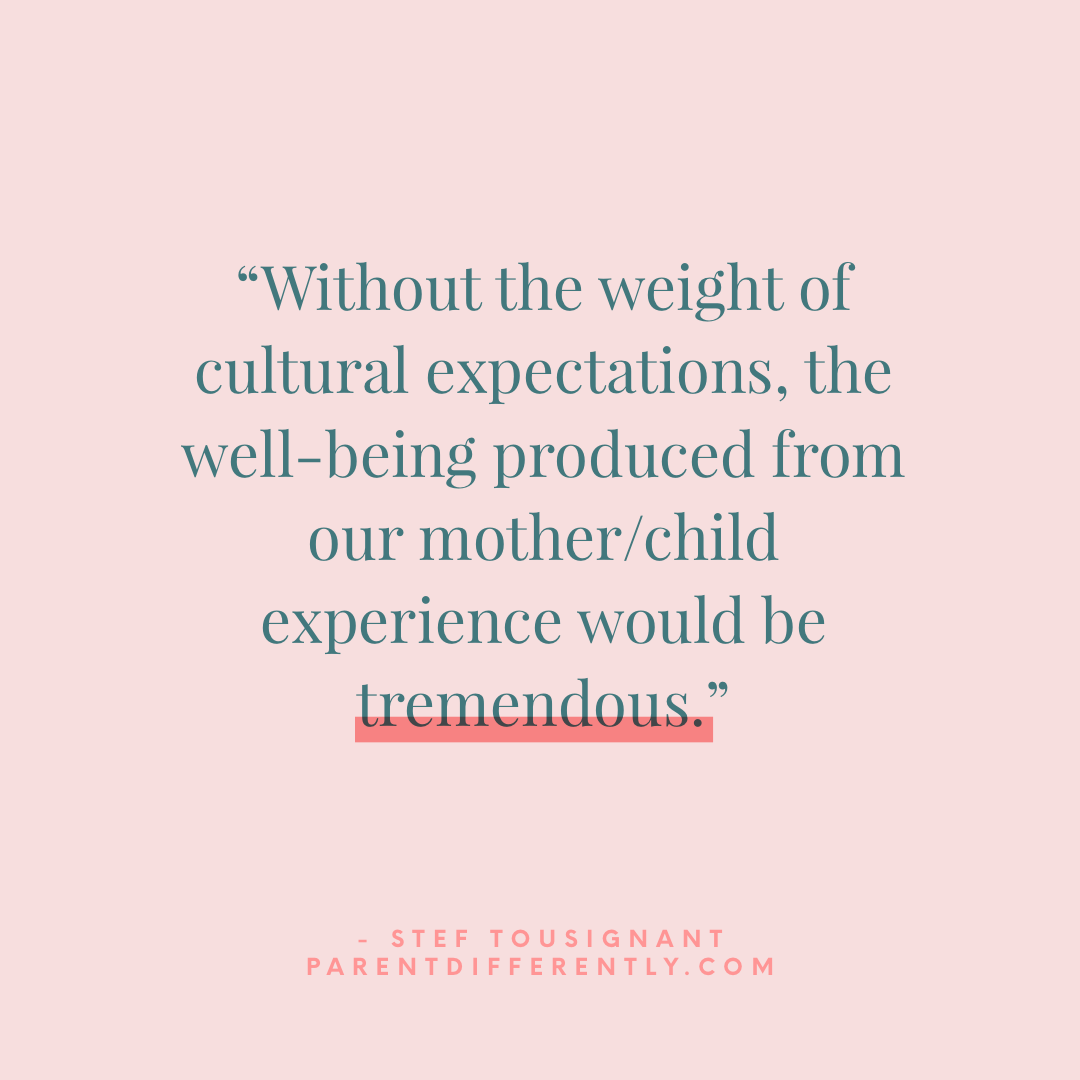The Myth of a Perfect Motherhood
EMBRACING SELF-GROWTH AND COMMUNITY
Motherhood today is a far cry from the idyllic images painted for us on our Instagram feeds. It's not a serene, monotone journey, but more like a crazy, emotional rollercoaster ride.
We are caught in the highs and lows of paradoxical emotions, battling the ever-looming "mom guilt" and trying to “enjoy every moment.” 🙄 What was once thought of as the epitome of a "good life" has evolved into a stressful mess. Why is this happening!? And how can we make it better?
Let's talk about the realities of modern motherhood, the myth of the maternal instinct, and how embracing self-growth and community could just be our ticket out of this chaos.
THE MYTH OF THE MATERNAL INSTINCT
Once upon a time, motherhood was seen as the ultimate path to happiness for women. It was believed that women possessed a natural maternal instinct that made parenting easy and immensely rewarding. However, today's reality couldn't be further from this ideal. Mothers face a myriad of emotions, from joy and gratitude to sadness and anxiety, all within the first 24 hours of welcoming a new baby into the world. The maternal ideal shatters for most women in those first moments, and they're left to grapple with a range of complex feelings that come up - especially shame.
UNDERSTANDING EMOTIONAL COMPLEXITY
Life is a tapestry of emotions, and many of the emotions we experience can be divided into two categories: positive and negative. Negative emotions like shame, anger, and fear prompt specific survival focused responses, limiting our thoughts and actions to mainly flight, fight or freeze. On the other hand, positive emotions like joy, gratitude, and awe don't trigger immediate action; instead, they broaden our perspective, opening us up to new ideas, concepts, and resources. This phenomenon is known as the "broaden-and-build theory of positive emotions" and was developed by Barbara Fredrickson in 1998.
SO, WHY DO THE FIRST DAYS OF MOTHERHOOD OFTEN FALL SHORT OF EXPECTATIONS?
The answer lies in the clash between personal experience and cultural norms. The cultural narrative of motherhood emphasizes its meaning and importance, but it also sets unattainable standards. Without the weight of cultural expectations, the well-being produced from our mother/child experience would be tremendous. Satisfaction and well-being are subjective, or shaped by individual perspectives, but when our experiences deviate from societal norms, our satisfaction can take a hit.
THE PURSUIT OF THE "GOOD LIFE"
The definition of a "good life" is a subject of debate among researchers and philosophers. Christopher Peterson (2006) argued that the most desirable state involves eudemonic harmony, or a balance between meaning, purpose, growth, and expansion. This balance can be achieved through self-actualization, self-reflection, and the discovery of positive character traits. And once we learn these skills, we aren't selfish; we use them to serve the greater community.
THE CHANGING FACE OF COMMUNITY
However, there's a notable difference between today's communities and those of previous generations: individualism. In the past, when the term "parent" primarily referred to mothers, there was a sense of community support. Neighbors, bus drivers, and extended families all looked out for children. Mothers had a robust network of help. But the rise of individualism has brought both freedom from gender-confining roles AND an increase in loneliness and depression rates (read more about that in Generations by Jean Twenge).
Maternal depression rates have risen, with one in ten children experiencing a depressed mother (Ertel, Rich-Edwards, & Koenen, 2011). A recent Pew Research poll found that 66% of mothers felt that parenting was "a lot harder" than they had anticipated. These factors, coupled other influences, have led to the lowest birth rate in US history.
(Read more about building community through simple gratitude events here.)
THE MYTH OF PARENTING PERFECTION
The message that parenting is "worth it" creates confusion when it doesn’t match reality, and it contributes to the perception that parenting is much harder than expected. By portraying the complete emotional landscape of parenting, we can acknowledge that “meaning” is derived not only from positive experiences but also from the negative ones. It was Peterson who points out that negative experiences act as signals, showing us the areas that need attention: "I'm angry when my kids don't listen because I feel unseen." But positive experiences motivate growth: "Hugging my kids after work calms me and provides the attention I need."
A GOOD LIFE ISN'T ALL GOOD
A good life doesn't have to be all good and there are certainly bad days. In fact, enriching experiences often stem from overcoming challenges. It's the negative experiences, just as much as the positive ones, that make parenting a source of well-being and life satisfaction. They inspire growth and self-reflection. With a shift towards more inclusive messaging and improved social support, future parents can step into the delivery room with a set of expectations that align with the realities they'll face. It's a journey filled with both ups and downs, guided by the compass of self-growth and supported by a caring community.
WHAT NOW?
The pursuit of a "good life" is a deeply personal journey. By acknowledging the diverse emotions that parenting can surface and shifting our societal narrative to one of inclusivity and support, we can navigate the challenges and joys of raising the next generation. It's time to embrace the full spectrum of parenting experiences, recognizing that a "good life" can be derived from both the positive and negative moments. In doing so, we can create a world we feel empowered to grow, learn, and thrive as we navigate the rewarding adventure of raising children.
- And don’t ever forget along that journey, you are a GoodAF Mom. - Stef



















